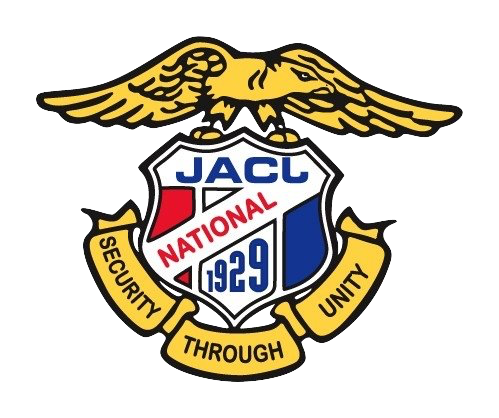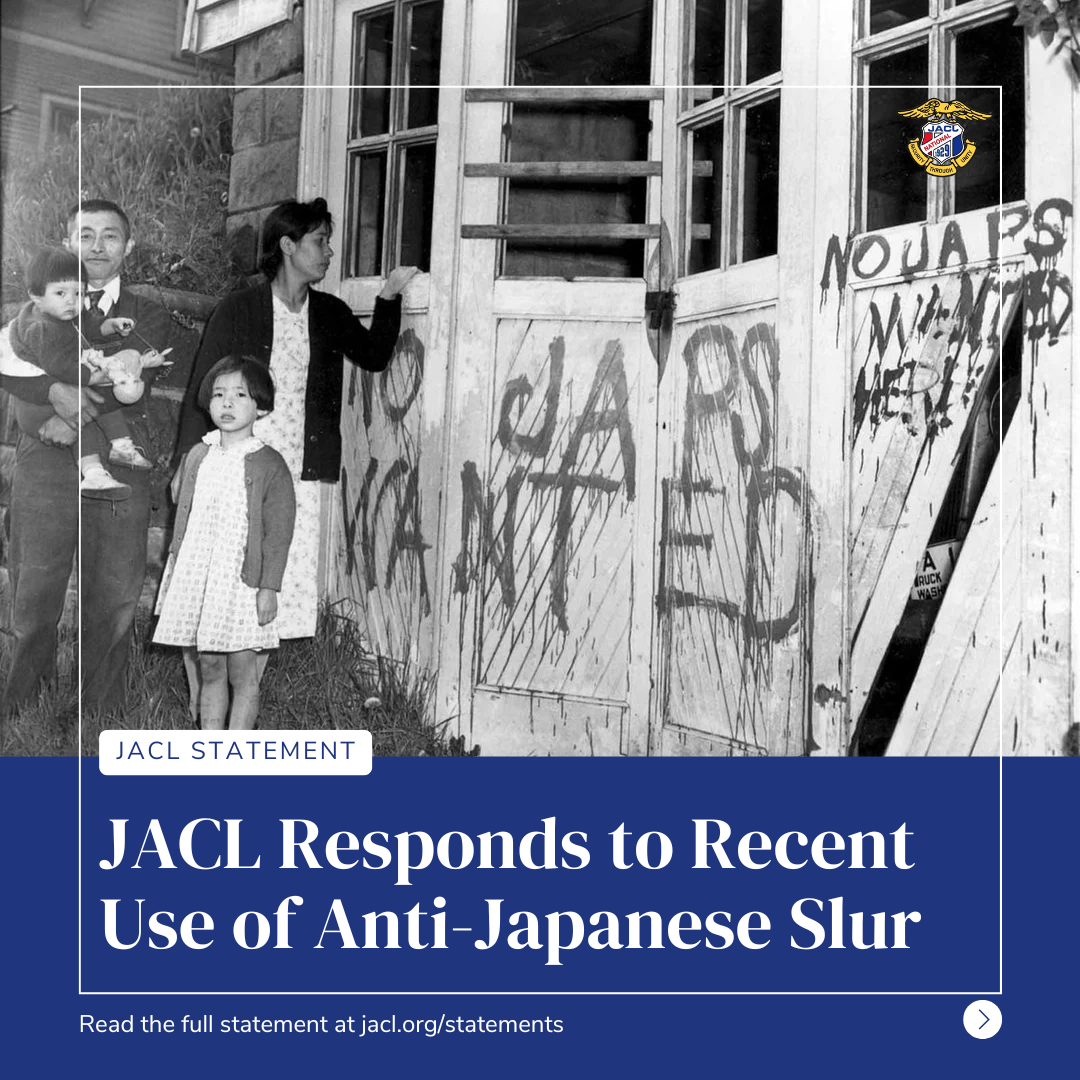Anti-Hate Program
Prejudice and bigotry persist as obstacles to achieving a society where all individuals and groups feel safe and equal. In 1942, Japanese Americans lost their liberty following Japan’s attack at Pearl Harbor when America ignored the Constitutional rights of some of its citizens in the wake of a barrage of racism. Today, anti-Asian sentiment continues to be directed at individuals and groups within the Asian American community.
JACL works to eradicate the use of negative stereotypes and misperceptions about Asian Americans and Pacific Islanders. To accomplish this, the JACL monitors and combats hate crimes and hate incidents including defamation and racial/ethnic profiling.
Resources in Response to the Rise in anti-Asian sentiment due to COVID-19 & Atlanta Shootings
The Asian American Leaders Table has put together a list of resources, statements, donation links, and vigils for community members following last week's tragic shooting. Visit Here
Messaging guidance on Atlanta shootings from National Asian Pacific American Women’s Forum (NAPAWF). Visit Here
Anti-Asian Hate Social Media Campaign #ProtectAllPeople. View the toolkit here: bit.ly/ProtectAllPeople
Asian American Journalist Association (AAJA) resources and guidance on messaging around recent events: https://aaja.org/news-and-resources/guidances/
FOR MEDIA ONLY: Sign up to receive a list of AAPI spokespeople from 100+ community organizations across 20+ media markets in the U.S. crowdsourced by Resource Media and shared with AAJA Studio, a source diversity and speakers bureau initiative by the Asian American Journalists Association. Visit Here
Events Around anti-Asian sentiment due to COVID-19 and Atlanta Spa Shootings
You can visit the webpage from the Asian American Leaders Table above for a list of local vigils.
Thursday, March 25, 2021 - #AAPIWomenStrong: A National Conversation on Race and Gender After the Atlanta Spa Shootings: Visit Here to RSVP
Friday, March 26, 2021 - #StopAsianHate National Day of Action and Healing: Find the toolkit and learn more here: https://www.asianamericandayofaction.com/
Friday, March 26, 2021 - Worldwide Vigil for Victims of the Atlanta Shooting. Learn more here: http://326vigil.org/
Anti-Asian Sentiment
Xenophobia and Population Visibility: Asian Americans and Pacific Islanders are easily identifiable by their physical appearance. Asian Americans and Pacific Islanders are the fastest growing population in the United States, especially in the states of California, Hawaii, New York, Illinois, Texas, and Washington.
Economic and International Relations: When the U.S. economy declines or when an incident occurs involving as Asian nation, attention often shifts to the role other countries play in providing “unfair” competition or the negative impact of the incident. As a result, Asian Americans and Pacific Islanders are often perceived as “foreigners.”
Media Portrayals and Public Perceptions: Asian Americans and Pacific Islanders are often portrayed in the media in a variety of contradictory stereotypes, ranging from the “model minority: at the head of their class in school, to the non-English speaking immigrant who may be perceive to be an undocumented worker. Asians are also characterized in film as unscrupulous businessmen and cruel mobsters or as compliant, and submissive and exotic. One-dimensional portrayals, coupled with the absence of accurate images and positive role models, obstruct public understanding of the Asian American and Pacific Islander community and can contribute to an anti-Asian climate.
Stereotype of the Asian Monolith: Asian Americans and Pacific Islanders are often perceived as a monolithic group despite extensive diversity within the community. Thus, even though an act of anti-Asian sentiment might be perpetrated with a particular ethnic group in mind (e.g., South Asian, Filipino, Japanese, Korean, Chinese), a failure to make distinctions between Asian American and Pacific Islander ethnic groups causes members of all groups to become potential victims.
Hate Crimes
If you need crisis support you may contact the Crisis Text Line by sending the text “HOME” to 741741. For more information about this resource, visit http://www.crisistextline.org/.
State Hate Crime Laws:
45 states and the District of Columbia have statutes criminalizing various types of bias motived violence or intimidation.
See a chart of hate crime laws by state here, from the NAACP.
Resources from the Stop Hate Project:
More Resources
When Hate Hits You: A resource guide on anti-Asian sentiment including examples of hate crimes, factors that cause anti-Asian sentiment, and steps to take when an incident occurs.
A Troubling Legacy: A concise history of anti-Asian sentiment in the United States.
An Unnoticed Struggle: A concise history of Asian American civil rights issues.
Words Can Kill the Spirit: A brochure explaining racial slurs directed at Asian Americans.
Anti-Asian Sentiment on Campus: A brochure that outlines what to do if a hate incident or hate crime occurs on campus.
Responses to Hate
JACL responds to incidents of defamation and hate directed at Asian Americans and Pacific Islanders through direct intervention or by providing assistance to JACL chapters to confront incidents in their local areas.
See below for our most recent responses to hate.










